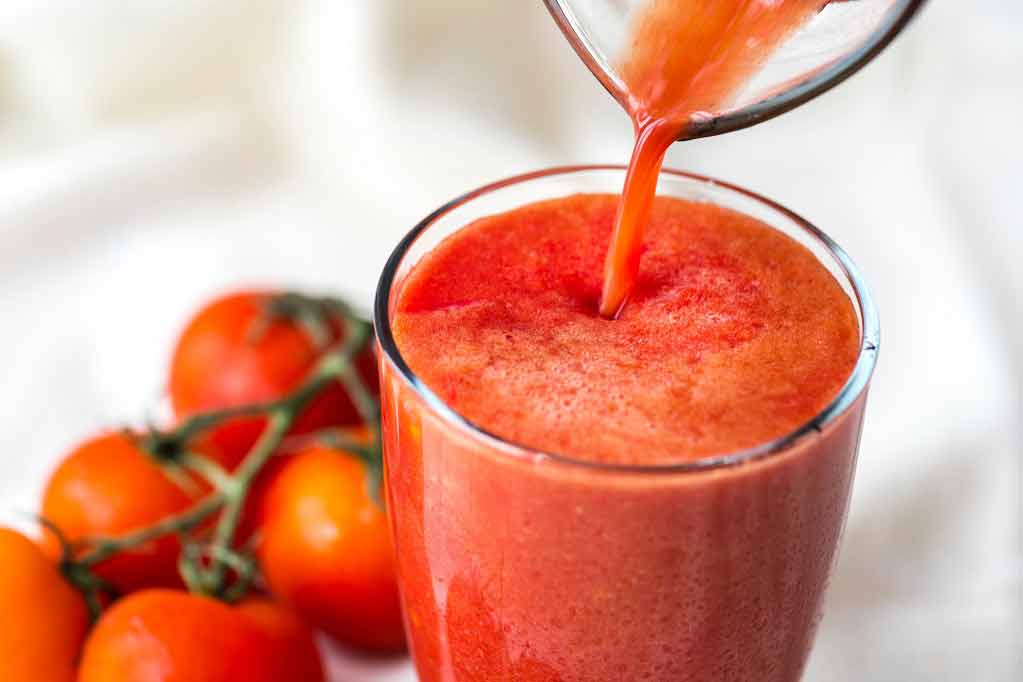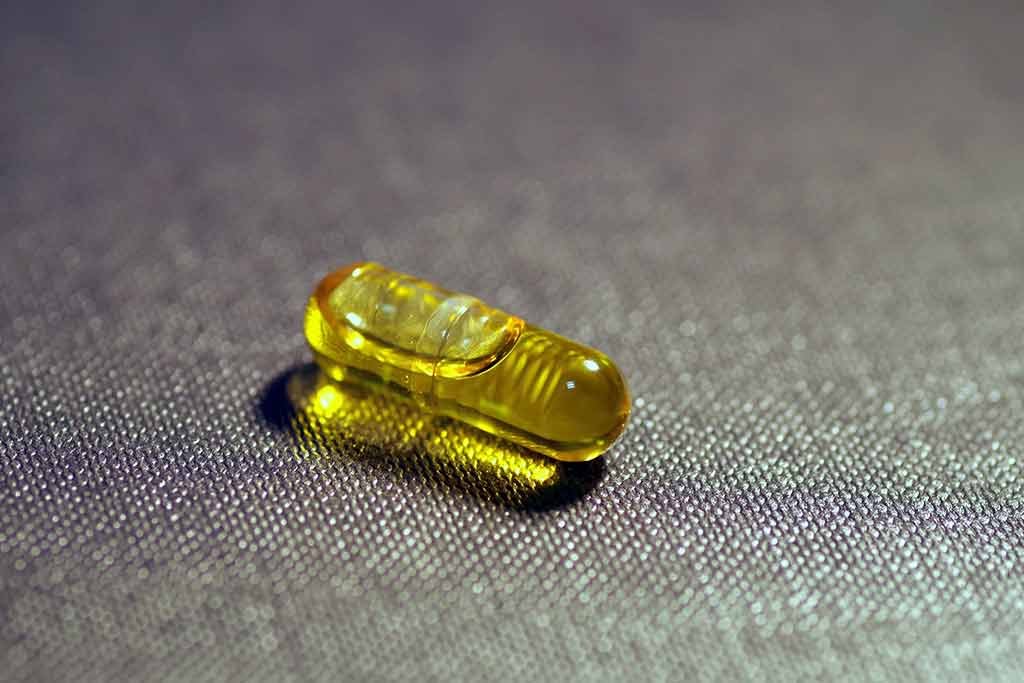Can tomatoes prevent a stroke?
Food and diet

“Tomatoes are 'stroke preventers',” BBC News has claimed. The news is based on a study looking at the levels of various chemicals called carotenoids in men’s blood and their long-term...
“Tomatoes are 'stroke preventers',” BBC News has claimed.
The news is based on a study looking at the levels of various chemicals called carotenoids in men’s blood and their long-term risk of stroke.
Carotenoids are naturally occurring chemicals which give fruit and vegetables their colour. They can act as antioxidants. Antioxidants are believed to help protect against cell damage from molecules known as "free radicals" and "singlet molecular oxygen". Antioxidants are thought to work by reacting with an unstable molecule and bringing it under control.
Some have suggested that antioxidants may have a protective effect against stroke by reducing damage to blood vessels.
In this study, the researchers found that men with the highest levels of a chemical called lycopene (known to be an antioxidant) in their blood had a 55% reduced risk of stroke compared with those who had the lowest levels. Lycopene is the chemical that gives tomatoes their distinctive red colour.
An important limitation of this study is that, although it included 1,000 men, only 67 strokes occurred. This makes for a very small sample size, which decreases the reliability of the risk calculations.
Overall, this research cannot show that the levels of lycopene were directly responsible for the differences in stroke risk, and it is also unclear how lycopene could prevent strokes. However, the findings of this study support the recommendation to eat a balanced diet rich in fruit and vegetables.
Where did the story come from?
The study was carried out by researchers from the University of Eastern Finland, Lapland Central Hospital and University Hospital of Kuopio, Finland. It was funded by Lapland Central Hospital.
The study was published in the peer-reviewed journal Neurology.
This study was covered accurately by the BBC. However, the researchers looked at blood levels of lycopene, which is a marker of tomato intake, but they did not directly look at tomato consumption itself, which the BBC headline seems to suggest.
That said, it is reasonable to assume that most middle-aged Finnish men would be getting their lycopene intake from tomatoes, rather than from more exotic sources such as papaya or pink guava.
The researchers were also looking more generally at all the major types of carotenoids, rather than lycopene only.
What kind of research was this?
This was a prospective cohort study. It aimed to determine the association between blood concentrations of carotenoids at the start of the study and the risk of stroke during follow-up.
Carotenoids studied by the researchers included:
- lycopene
- a-carotene, found in vegetables such as carrots and spinach
- ?-carotene, the substance that gives carrots their orange appearance
- a-tocopherol, more commonly known as vitamin E
- retinol, more commonly known as vitamin A
A prospective cohort study is the ideal study design to investigate whether carotenoids influence stroke risk.
However, this type of study cannot show direct cause and effect (causation), since there may be other factors that explain any associations seen (called confounding factors).
For example, people who eat a diet high in carotenoids may also have other healthy lifestyle habits such as not smoking. These other factors could be associated with reduced risk, rather than the carotenoids themselves.
A more ideal design, which would balance out other confounding factors, would be a randomised controlled trial which randomised people to diets high or low in carotenoid-containing fruits and vegetables.
However, as a diet low in fruit and vegetables is known to be bad for health, such a trial may not be practical or ethical to perform.
What did the research involve?
The researchers recruited into the study a representative sample of 1,031 men living in and around the city of Kuopio in Finland who were aged between 42 and 61 and had no history of stroke. At the start of the study, fasting levels of carotenoids were measured from blood samples. The researchers also measured participants’:
- blood levels of low density lipoprotein ("bad" fat)
- high density lipoprotein ("good" fat)
- cholesterol and triglycerides (specific fats)
- blood pressure
- body mass index (BMI)
They also collected information on known risk factors for stroke, such as:
- alcohol consumption
- physical activity
- diabetes
- smoking
The researchers then followed up the men until they had a stroke or until the study came to an end. They followed the men for an average of 12.1 years. The number of strokes was determined from the FINMONICA stroke register, the Finnish national hospital discharge registry and death certificate registers.
The researchers then looked to see whether there was an association between blood levels of carotenoids at baseline and the risk of stroke, adjusting for some possible cofounders (age, examination year, BMI, blood pressure, smoking status at baseline, levels of serum low-density lipoprotein and cholesterol, diabetes and history of stroke).
What were the basic results?
During the study, 67 men had a stroke, 50 of whom had the most common type of stroke – an ischaemic stroke – which is caused by a blood clot. The men who had a stroke were older, had higher blood pressure, were more likely to have diabetes and had lower blood concentrations of lycopene.
The researchers divided blood carotenoid levels into quarters, and compared men with the highest levels with men with the lowest levels.
Men with the highest levels:
- had a decreased risk of stroke by 55% (hazard ratio 0.45, 95% confidence interval [CI] 0.25 to 0.95)
- had a decreased risk of ischaemic stroke by 59% (hazard ratio 0.41, 95% confidence interval 0.17 to 0.97)
Blood levels of the other carotenoids studied were not associated with stroke risk.
How did the researchers interpret the results?
The researchers concluded that: “High serum [blood] concentrations of lycopene, as a marker of intake of tomatoes and tomato-based products, decrease the risk of any stroke and ischaemic stroke in men.” They also stated that a balanced diet including fruits and vegetables “may prevent stroke”.
Conclusion
In this study, men in Finland with the highest blood levels of lycopene at the start of the study had a 55% reduced risk of stroke and a 59% reduced risk of ischaemic stroke (caused by a blood clot) over the following 12 years. However, levels of other carotenoids studied were not associated with stroke risk.
This study has the limitation that serum levels of lycopene cannot be shown to be responsible for the differences in stroke risk, as it is possible that other factors could explain the reduction in stroke risk. In particular, the researchers did not collect any information on dietary intakes. Therefore their analyses did not account for dietary factors, and also, although they adjusted for several other potential confounders that could influence the association, they did not adjust for physical activity. However, the researchers did collect information on baseline physical activity.
These things are important, as higher carotenoid levels could be associated with a healthy lifestyle, including healthy diet and regular physical activity, and it could be these things that are influencing stroke risk, and not the carotenoid themselves.
Information on serum levels of carotenoids and fats, smoking, physical activity and other factors were only measured at baseline. This is important because it is possible that these could have changed over the course of the study.
Another important limitation is that, although the study included 1,000 men, only 67 strokes occurred. When these men with stroke were further divided into four categories depending on their carotenoid level, this made very small sample sizes, which decreases the reliability of the risk calculations. The results of this study will therefore need to be confirmed in a larger group of people, and other population groups such as women or other ethnic groups.
While this study cannot prove that lycopene reduces stroke risk, it certainly lends support to the recommendation to eat a balanced diet rich in fruit and vegetables. Whether or not such a diet can reduce stroke risk, a large body of evidence shows that it can cut your risk of heart disease as well as some types of cancer.






 Subscribe
Subscribe Ask the doctor
Ask the doctor Rate this article
Rate this article Find products
Find products







